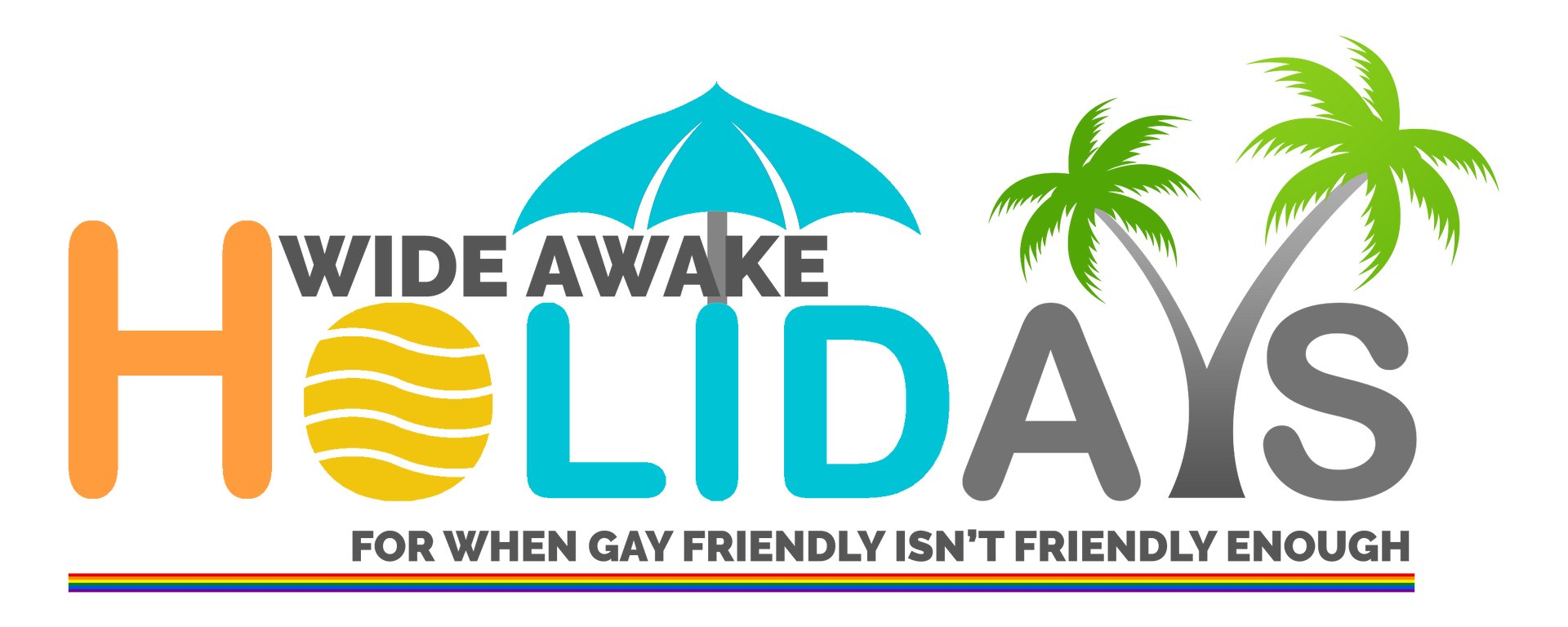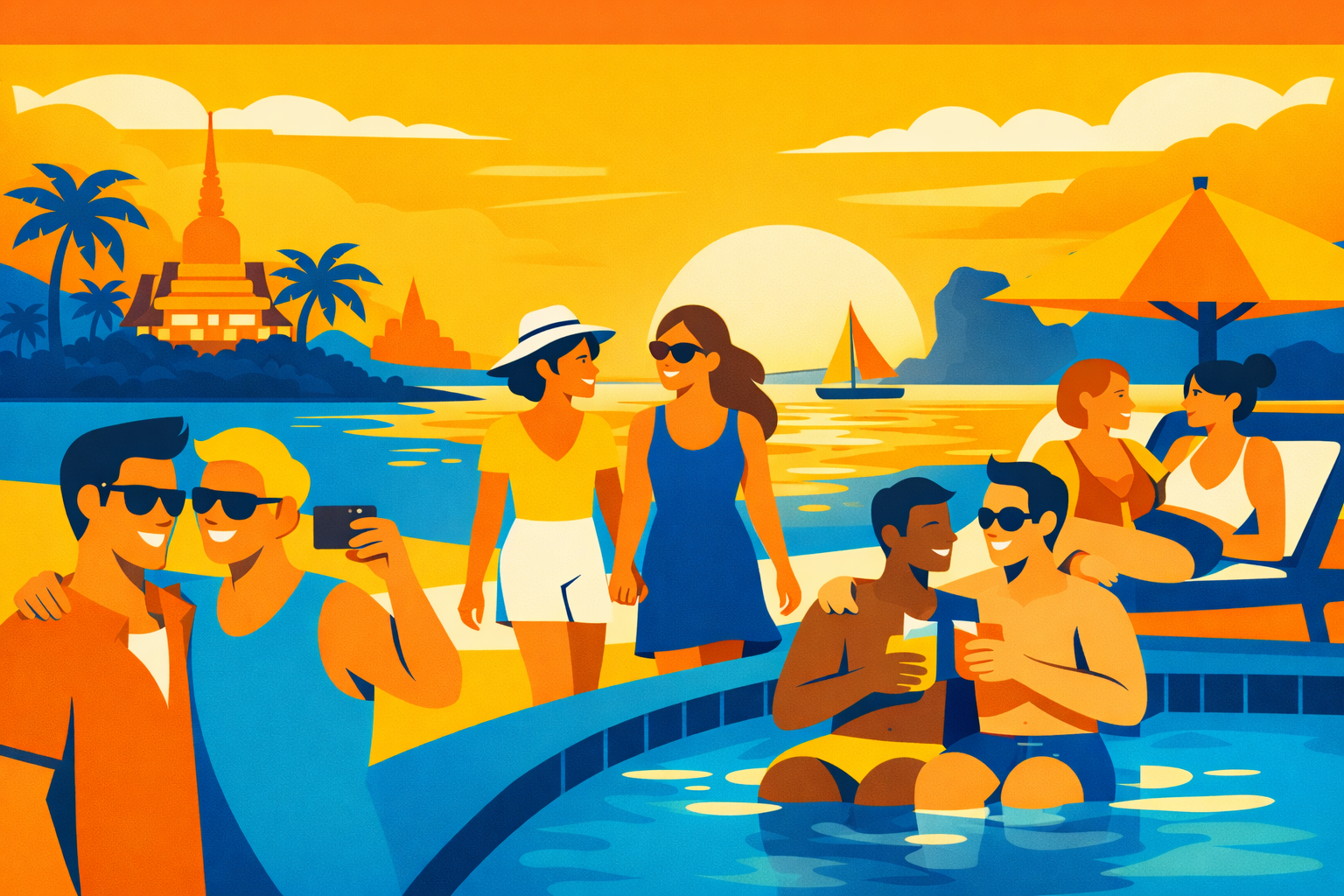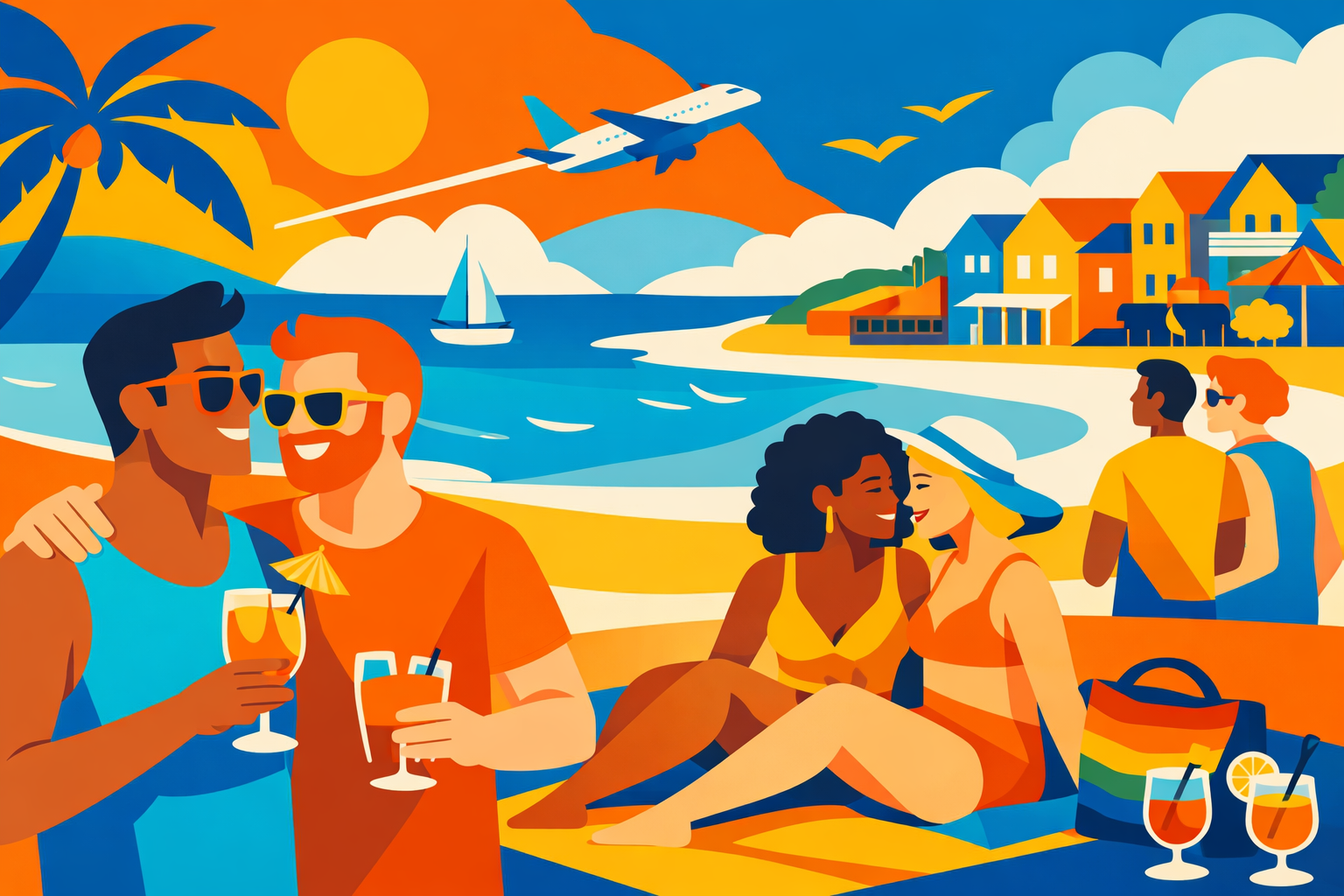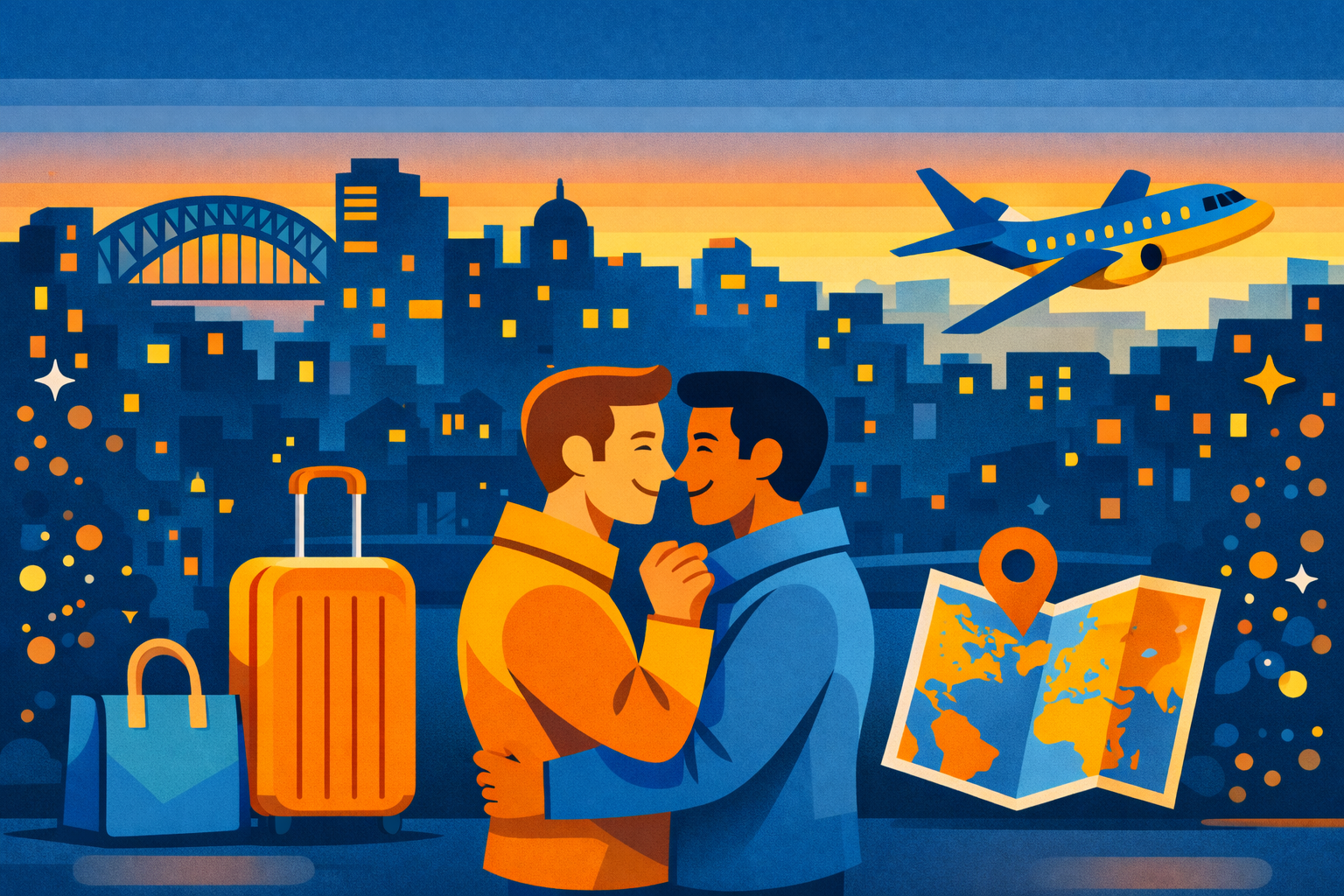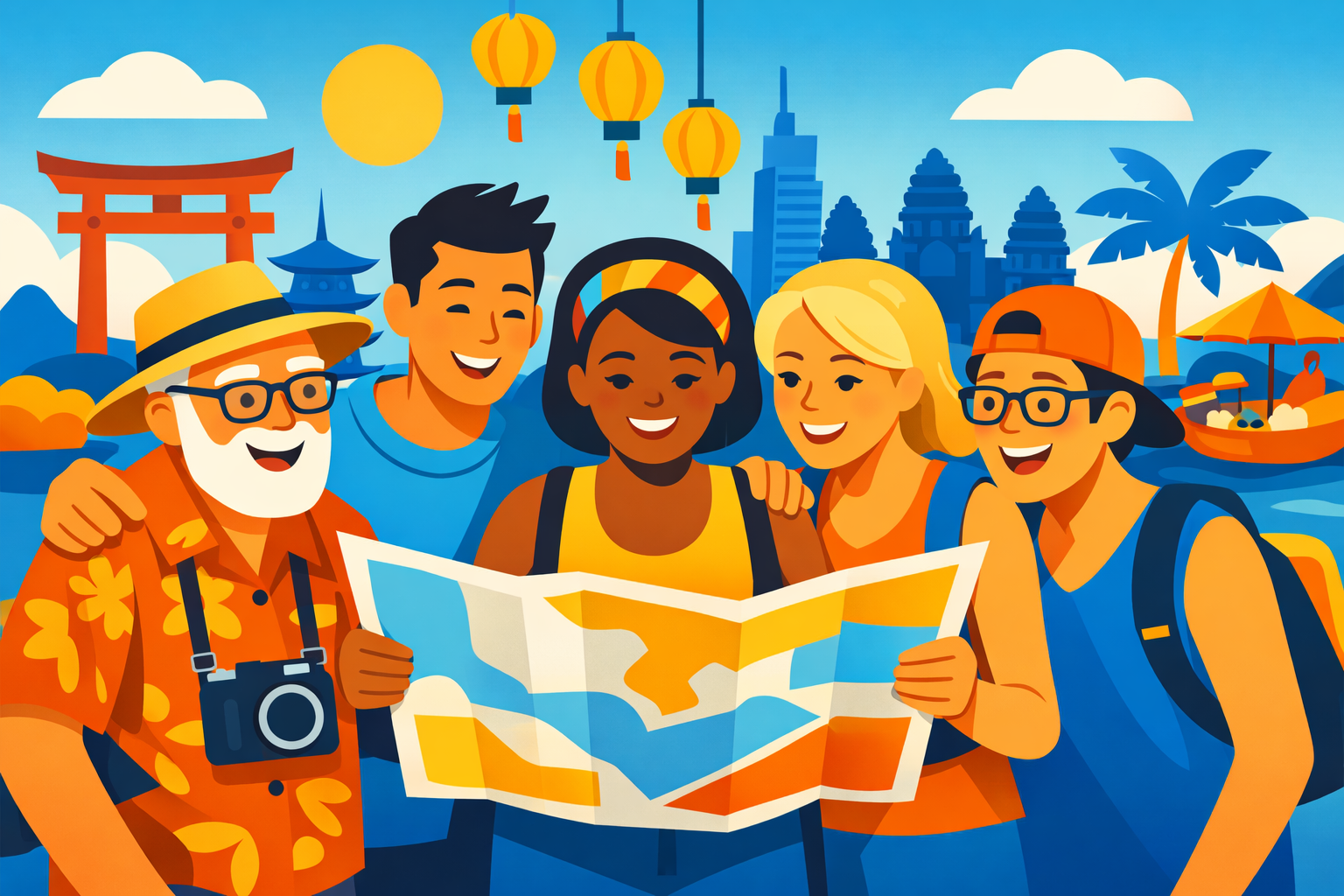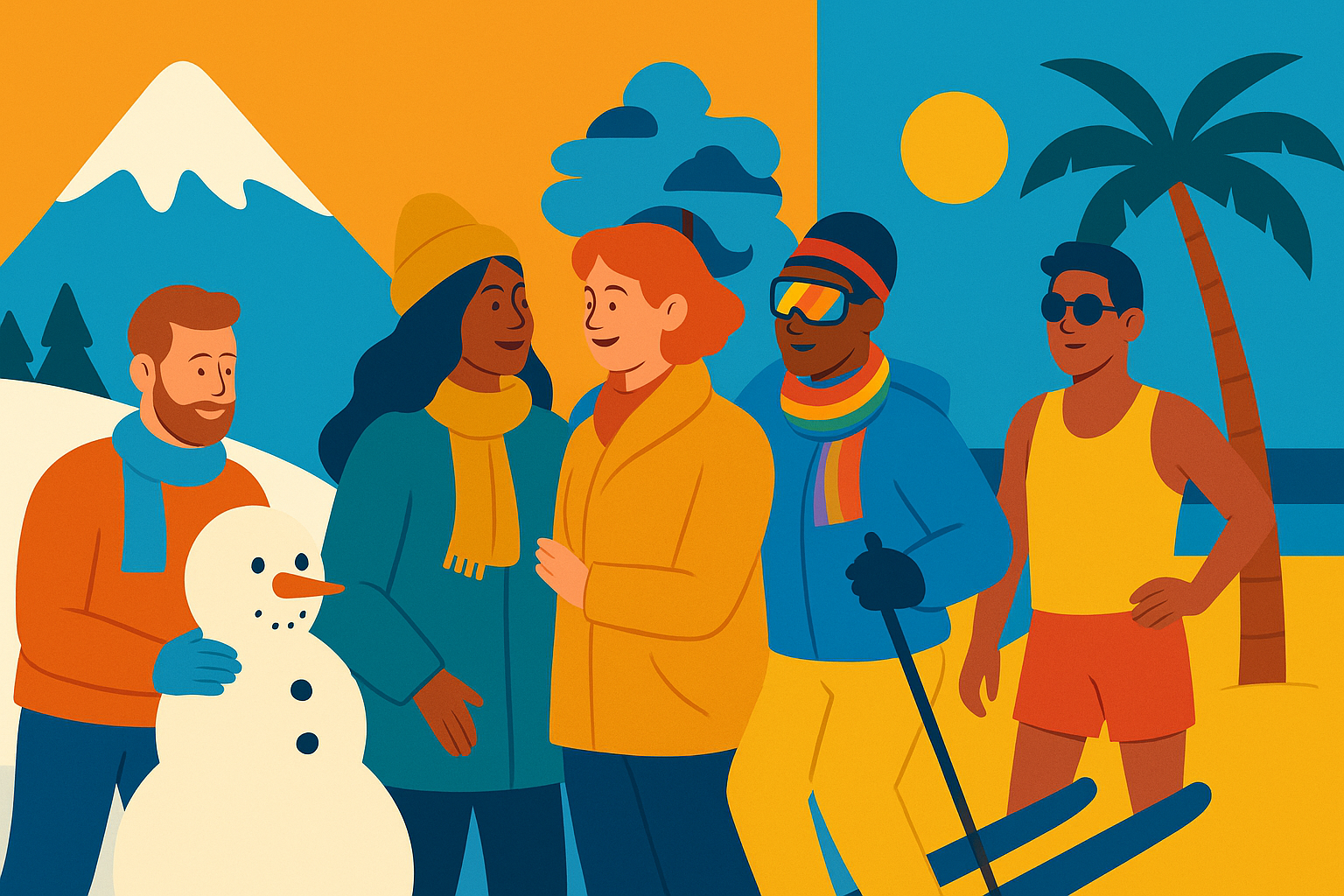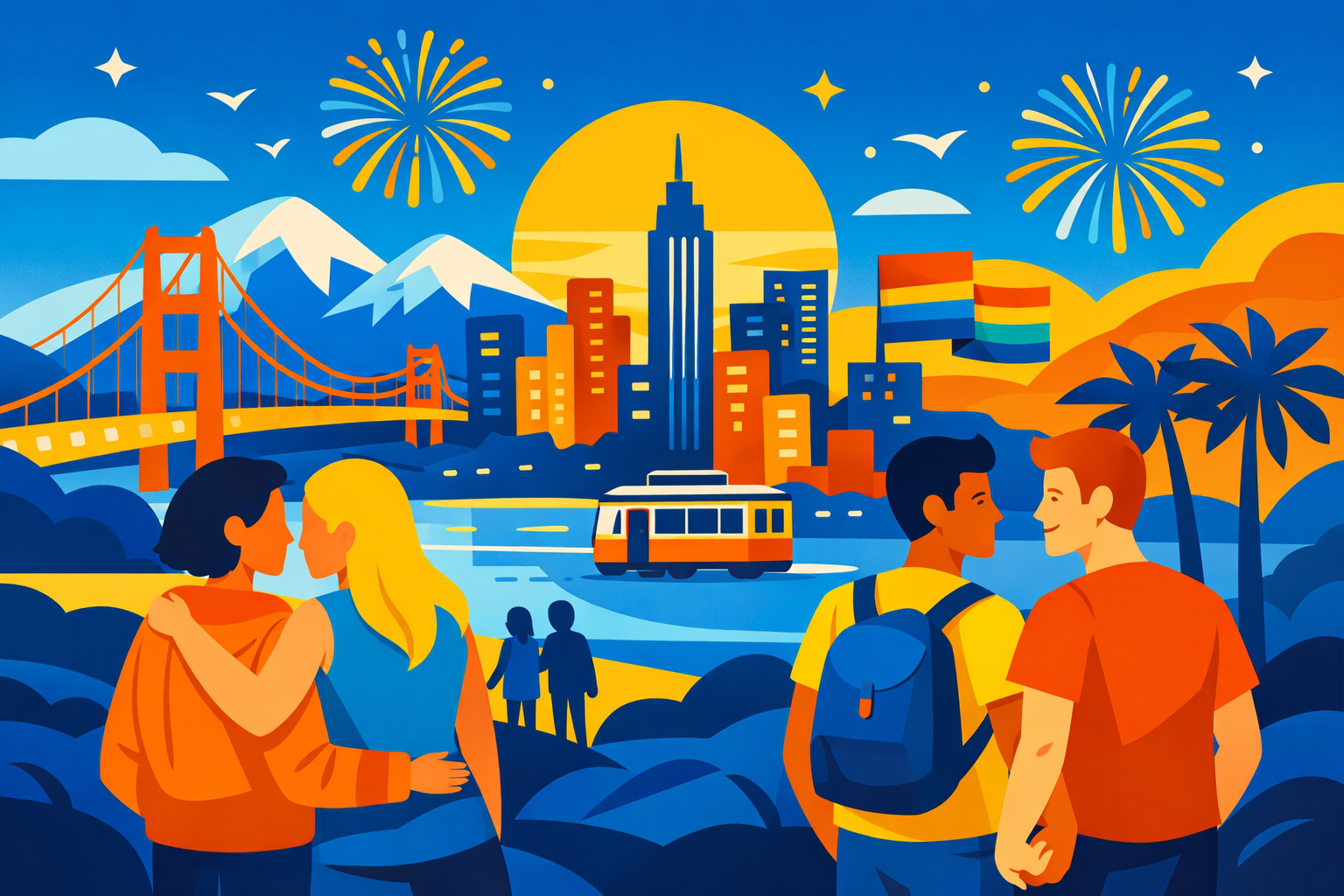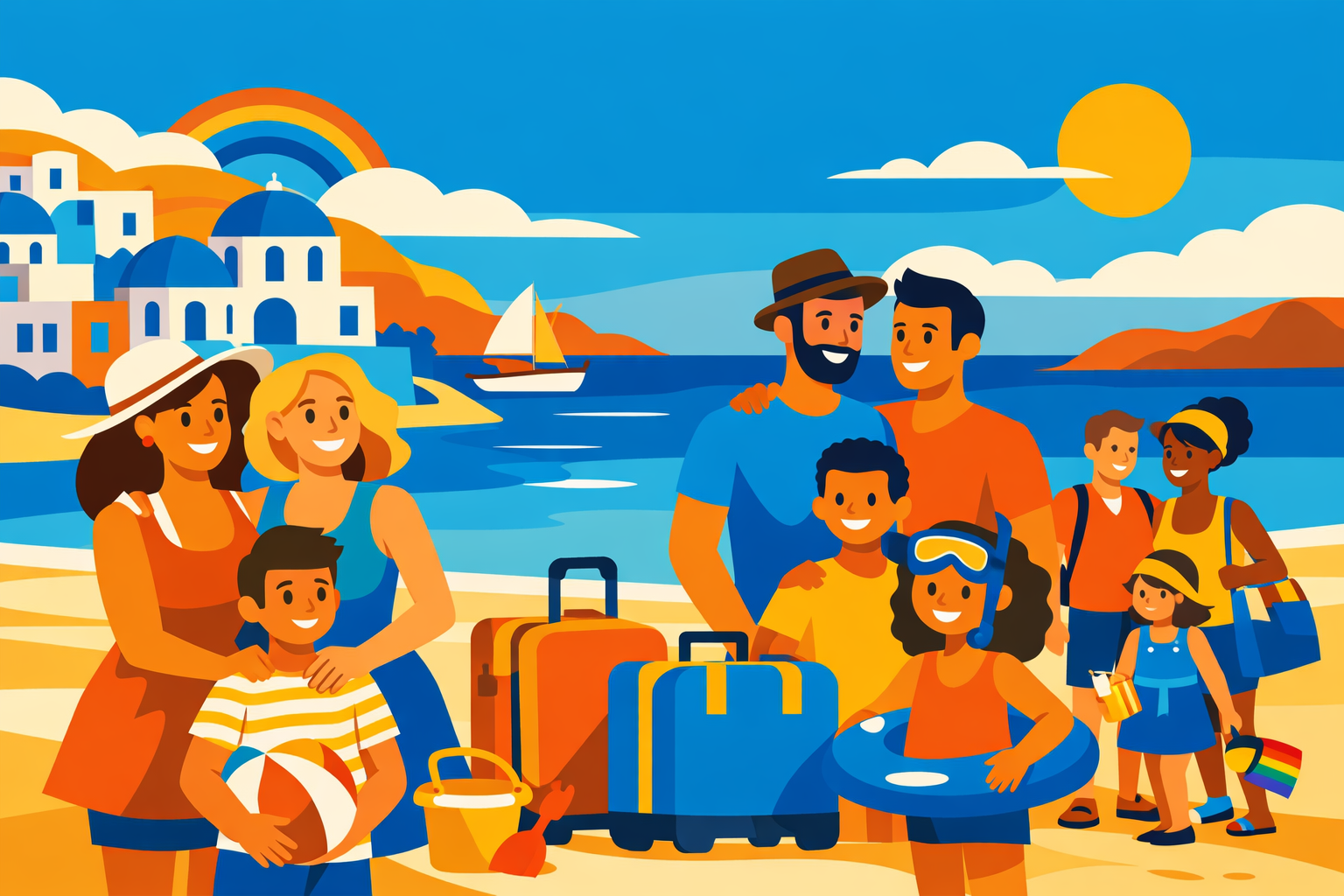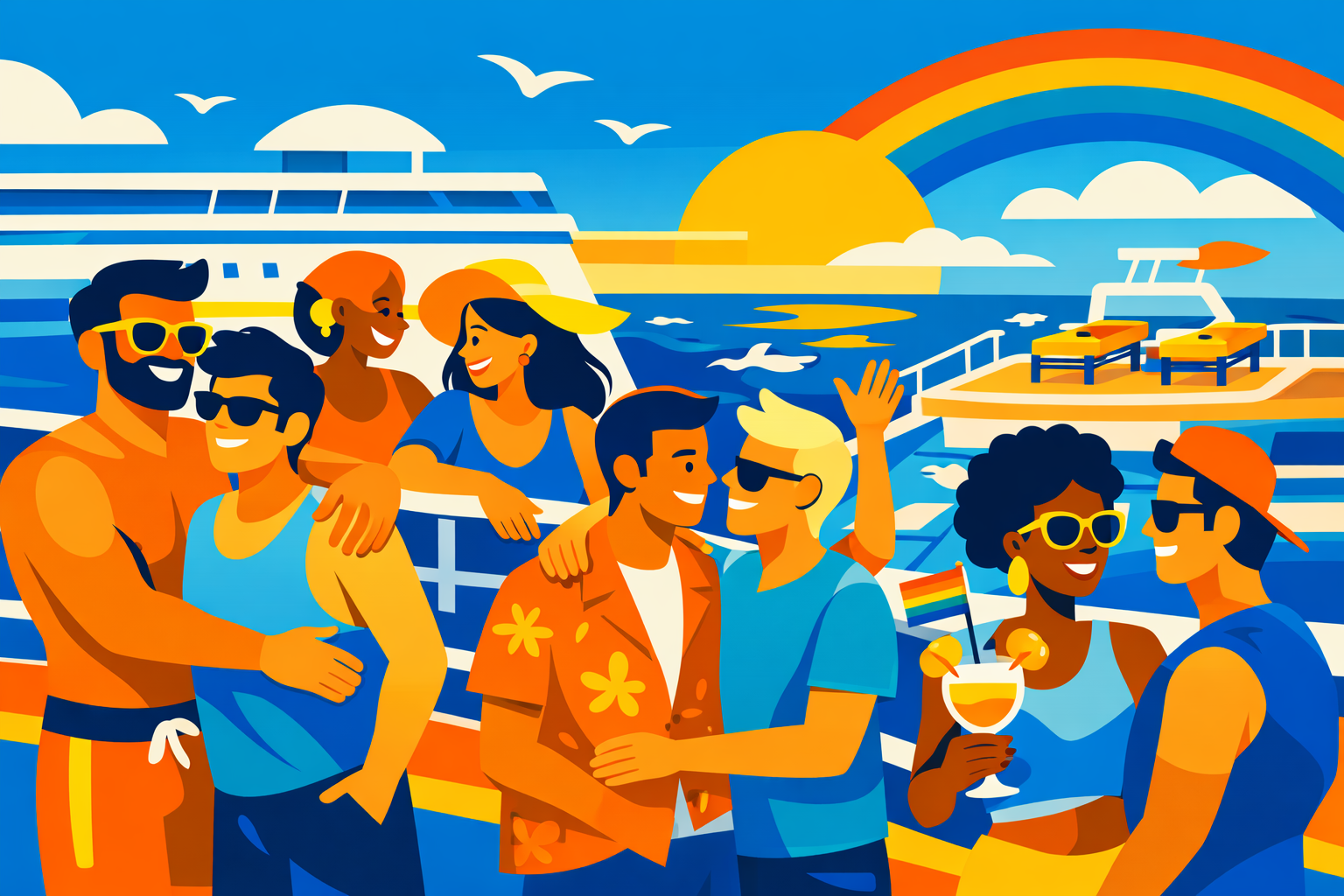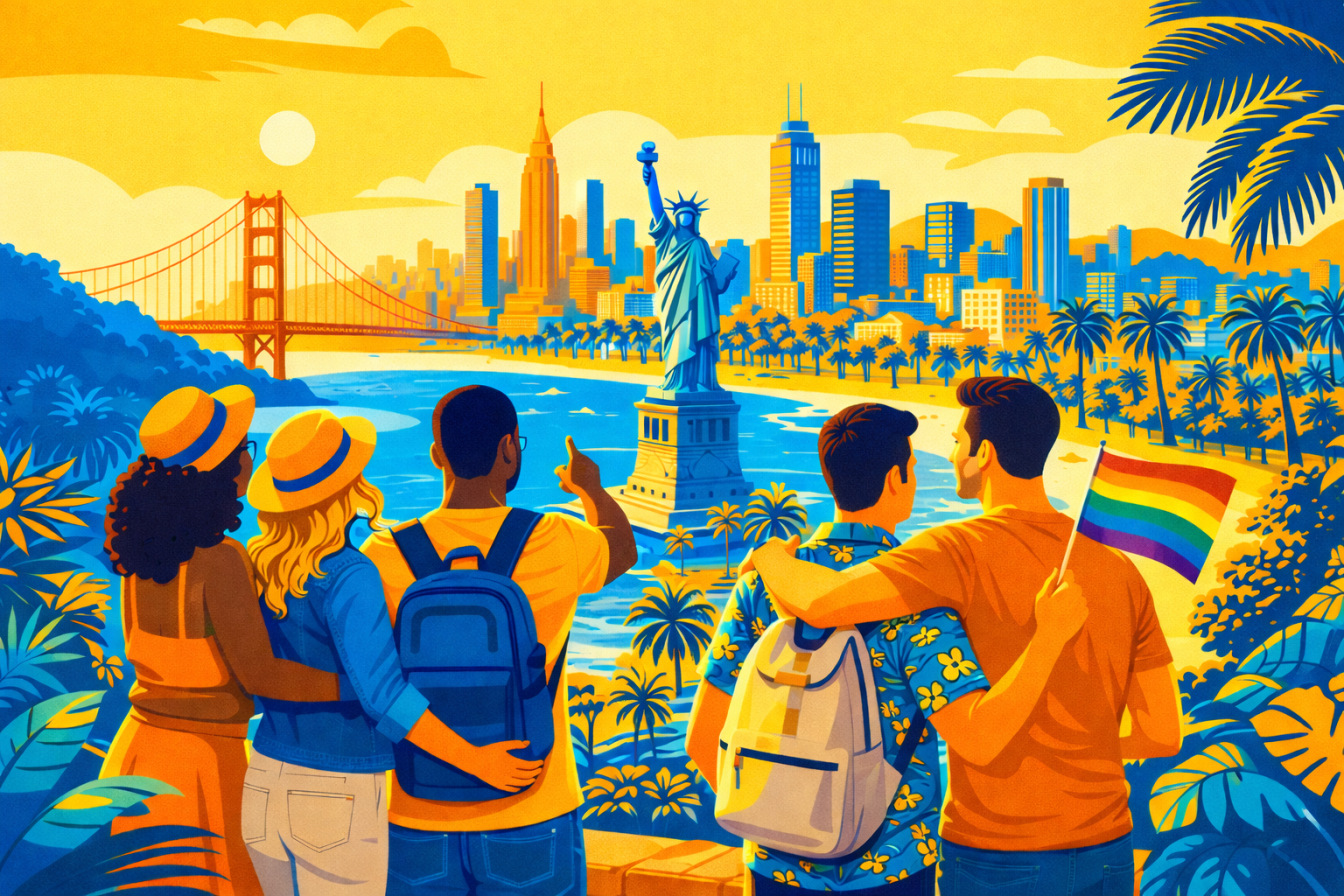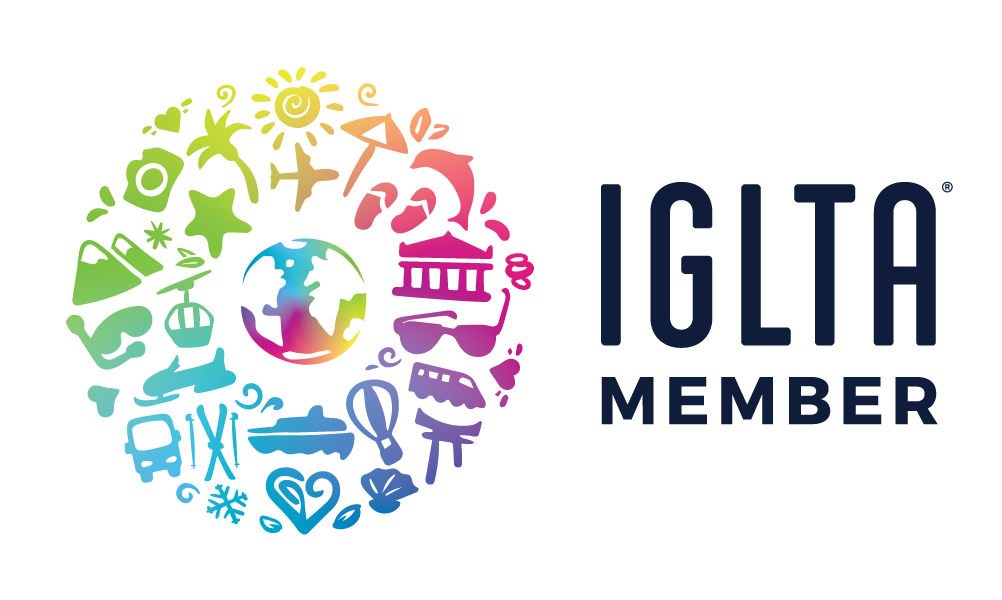LGBTQ+ Travel Etiquette: How to Respect Different Cultures Abroad
Respecting Cultures Through LGBT Travel Etiquette
Travelling is one of life’s great joys. But for LGBT travellers, it comes with an extra layer of thoughtfulness. Understanding LGBT travel etiquette isn’t just about safety; it’s about showing respect to local customs, building genuine connections, and making sure your journey feels both welcoming and enriching. When you approach new cultures with care, you open the door to experiences that go far beyond sightseeing.
Why LGBT Travel Etiquette Matters Everywhere
Every destination has its own rhythm, shaped by history, religion, and community values. For LGBT travellers, what feels natural at home may be viewed differently abroad. LGBT travel etiquette helps you balance authenticity with sensitivity. You don’t have to hide who you are, but you can learn how to adapt in ways that feel respectful.
Many countries are warm and open to diversity. Others are still finding their way. Knowing how to approach each setting can transform your trip from a simple holiday into an experience filled with understanding and mutual respect. That balance is the heart of good travel.
LGBT Travel Etiquette and Everyday Behaviour Abroad
Small choices matter when travelling. Public displays of affection may be common in London or Manchester, but the same gestures could draw unwanted attention in certain destinations. Practising LGBT travel etiquette means observing local cues and adjusting accordingly.
This doesn’t mean you should compromise your identity. Instead, it’s about choosing when and how to express affection openly. A simple hand squeeze may be more appropriate than a kiss in some settings. Dressing modestly in conservative regions shows awareness too. These choices reflect thoughtfulness and help ensure your travels remain comfortable.
Understanding Legal and Cultural Differences
LGBT rights vary dramatically from one country to the next. Some destinations offer full equality, while others maintain restrictive laws. Before travelling, research both the legal framework and the cultural atmosphere. LGBT travel etiquette involves being aware of what is legally permitted and what might be socially sensitive.
For example, in parts of the Middle East and Africa, laws can be strict. Even if enforcement is rare, travellers should remain cautious. In contrast, much of Europe, North America, and Latin America has embraced legal protections. Knowing the difference helps you set realistic expectations and keeps your journey stress-free.
Being prepared doesn’t limit your experience—it empowers you. With knowledge, you can focus on enjoyment instead of uncertainty.
Social Interactions and LGBT Travel Etiquette
How you connect with people abroad shapes your whole travel experience. Friendly chats with locals, conversations with fellow travellers, or even ordering food can all benefit from an awareness of LGBT travel etiquette. Politeness and patience go a long way.
When someone asks about your personal life, think about how much you want to share. In open destinations, mentioning your partner may feel natural. In more conservative settings, you might choose to frame answers differently. That’s not about hiding—it’s about gauging the situation and responding in a way that feels safe and considerate.
Remember, respect flows both ways. If you’re willing to listen, people are more likely to show curiosity rather than judgement.
Language and LGBT Travel Etiquette
Words carry weight, especially when they cross cultural borders. Simple terms like “gay” or “partner” may be understood differently in other languages. LGBT travel etiquette encourages you to be aware of these nuances.
Learning a few key phrases in the local language can make a huge difference. For example, knowing how to ask politely for a double bed in a hotel, or how to explain your relationship without confusion, adds clarity and reduces awkwardness. Translation apps help, but nothing beats showing locals that you’ve made the effort to learn a phrase or two.
Language also extends to gestures. What might be friendly in one culture could be offensive in another. A quick check before you travel avoids misunderstandings.
Destinations Where LGBT Travel Etiquette Feels Natural
Some places are more than welcoming—they’re celebrated hubs for LGBT travellers. These destinations make it easier to relax and enjoy yourself while still practising awareness.
Spain
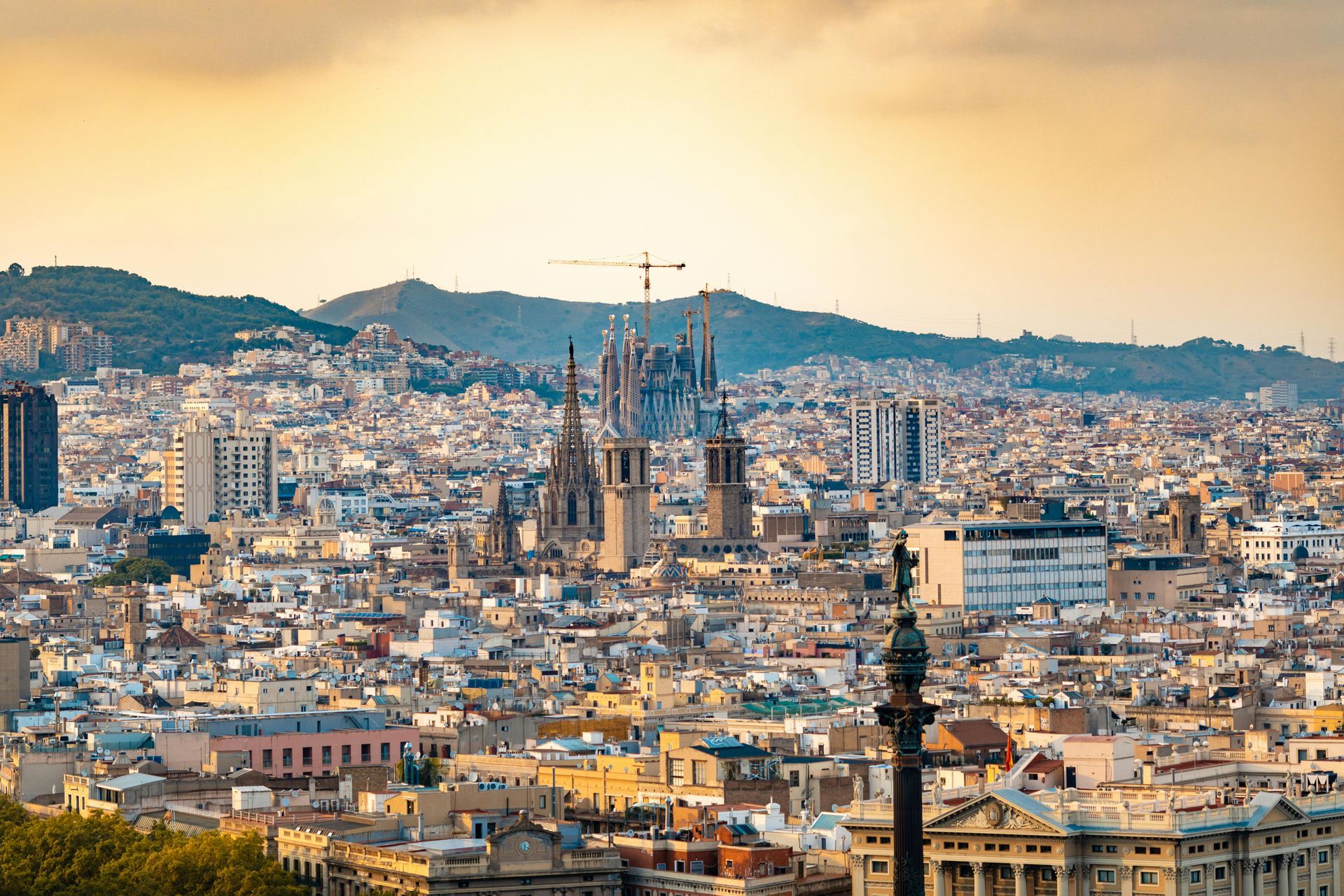
Cities like Madrid and Barcelona are famous for their inclusive nightlife, festivals, and neighbourhoods. Pride events attract millions, and same-sex couples are widely accepted. LGBT travel etiquette here is less about restraint and more about celebrating responsibly. Even in Spain, though, smaller towns may lean more traditional, so awareness still counts.
Greece
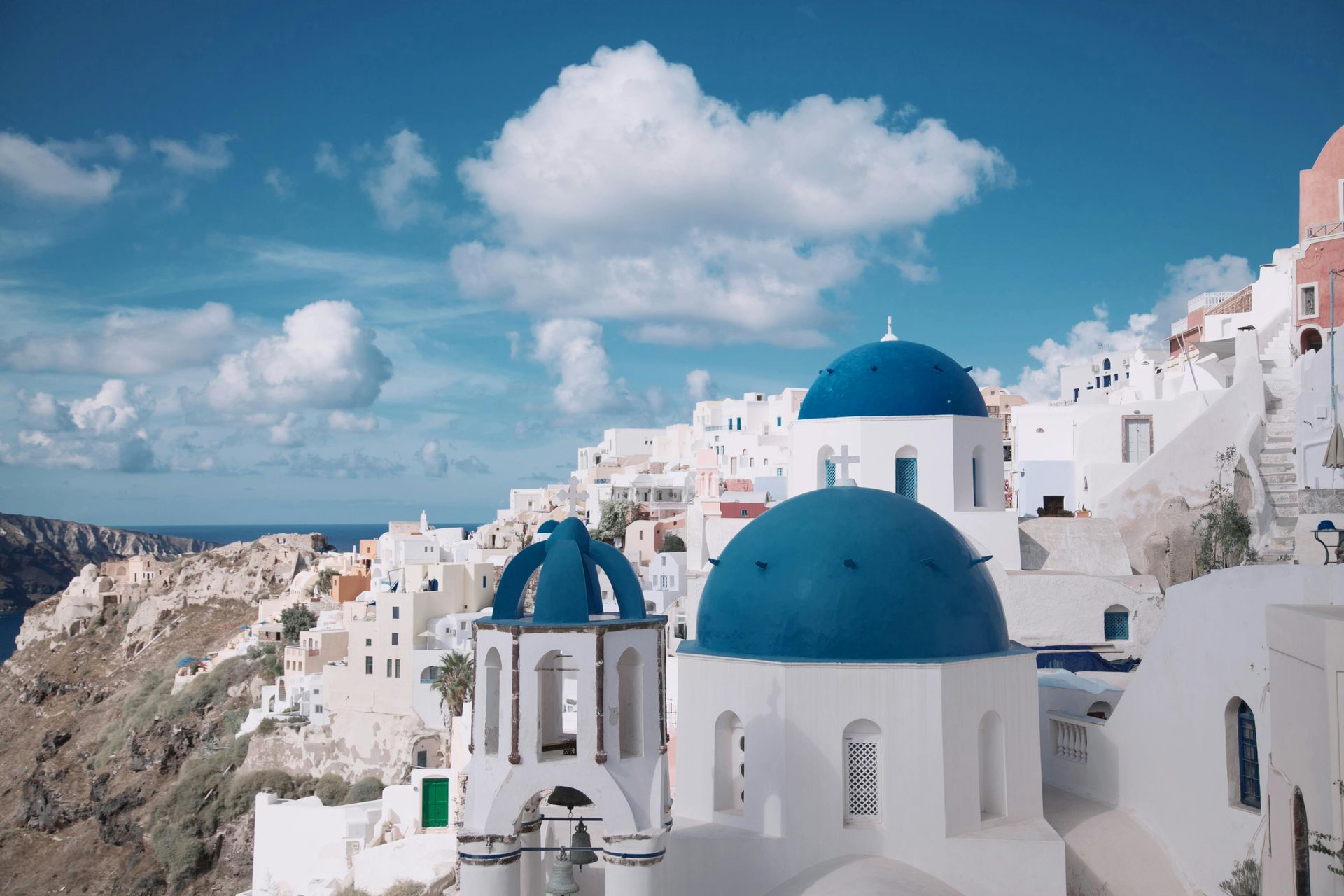
Islands such as Mykonos and Lesbos are icons of LGBT holidays. Exclusive resorts and beach clubs offer safe, fun spaces where travellers can be themselves. Yet away from the resorts, Greece has deeply rooted traditions. Showing respect to older generations by keeping affection private in small villages goes a long way.
Mexico
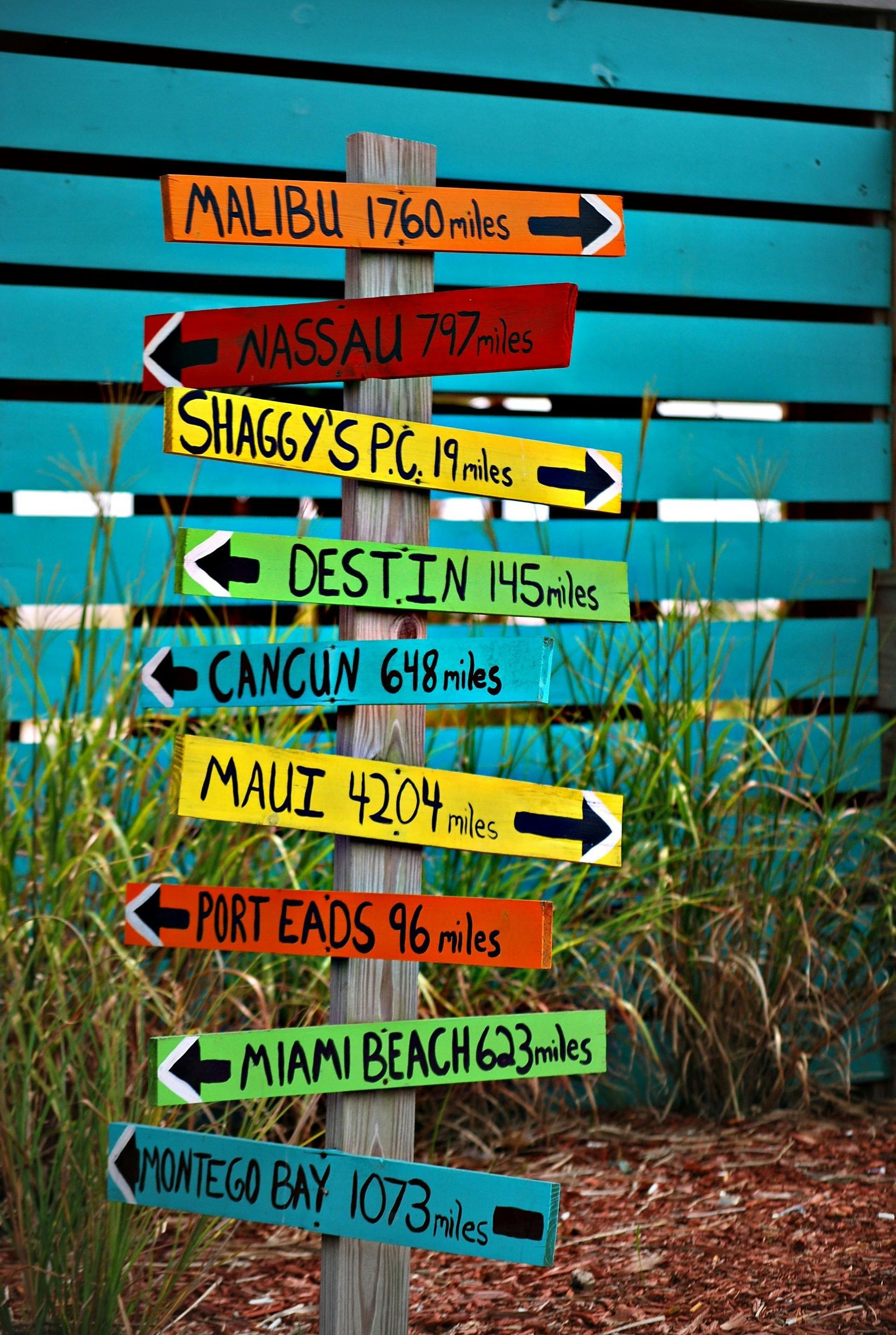
Cancún and Puerto Vallarta are global LGBT holiday favourites. Puerto Vallarta, in particular, is home to exclusive gay hotels, clubs, and beaches. But step outside the tourist centres, and you’ll encounter communities where discretion is still valued. Adjusting to each environment reflects both confidence and courtesy.
Exclusively LGBT Properties Worth Considering
For many travellers, knowing they’ll be welcomed without question makes all the difference. LGBT-only hotels and resorts offer a level of comfort where etiquette becomes second nature. These spaces are designed to celebrate diversity openly.
Examples include gay-exclusive hotels in Gran Canaria, popular with British travellers, or boutique resorts in Puerto Vallarta that tailor everything to LGBT guests. Booking these properties through a trusted travel company gives you both peace of mind and financial protection.
LGBT Travel Etiquette in Religious Settings
Sacred spaces are often the heart of a community. Whether it’s a church, mosque, synagogue, or temple, these sites carry deep meaning. LGBT travel etiquette here is about showing humility and care.
Dress codes are usually posted at entrances. Covering shoulders, wearing longer trousers or skirts, and removing shoes when asked all show respect. Even in LGBT-welcoming destinations, sacred places often hold traditional rules. Following them ensures your visit is appreciated rather than resented.
Silence is another form of etiquette. Whisper if you must speak, and avoid gestures of affection, even if subtle. When you honour these customs, you show locals that your presence is thoughtful, not disruptive.
Dining Abroad and LGBT Travel Etiquette
Sharing a meal is one of the most enjoyable ways to experience a culture. LGBT travel etiquette at the table doesn’t differ much from general good manners, but a little awareness helps.
In some countries, restaurants may assume couples are heterosexual. If a waiter separates bills or offers different menu items, don’t assume bad intent—it’s often habit. A calm correction, delivered with a smile, can clear up confusion without creating tension.
Group dining also comes with cues. In many Asian cultures, waiting for the eldest person to start before eating is standard. In Latin America, lingering at the table long after the meal is a mark of friendship. Observing and adapting is part of respectful travel.
LGBT Travel Etiquette When Travelling in Groups
Travelling with friends or family can feel liberating. But groups also stand out, which makes etiquette even more important. Loud behaviour, bold displays of affection, or dominating public spaces can create discomfort in more conservative destinations.
A good approach is to appoint one or two people as group “observers.” Their job is to notice how locals behave and gently remind everyone when it’s time to blend in more. It’s not about policing—it’s about making sure the whole group feels safe and welcome.
For groups booking through a gay-owned company, there’s also reassurance that accommodation and activities are vetted for inclusivity. This ensures that your shared experiences bring joy without unnecessary stress.
LGBT Travel Etiquette for First-Time Travellers
If this is your first LGBT holiday, it’s natural to feel a mix of excitement and uncertainty. LGBT travel etiquette provides the framework for confidence.
Start with research: know the laws, customs, and common attitudes of your chosen destination. Pack with awareness—both in terms of clothing and travel documents that may be checked. Finally, keep an open mindset. Every culture has its way of welcoming guests. Respecting those differences doesn’t reduce your identity—it enhances your adventure.
The best part? Once you’ve experienced respectful travel first-hand, your confidence grows, making each future trip smoother and more rewarding.
LGBT Travel Etiquette on Public Transport
Public transport is where travellers often blend most closely with locals. LGBT travel etiquette here is about awareness and discretion.
In large cities like New York, Berlin, or Bangkok, holding hands on the metro is unlikely to draw attention. But in smaller towns or conservative regions, the same action may feel uncomfortable. Sit together, smile, and enjoy the ride, but save affection for private spaces.
Always respect the unspoken rules: offer seats to older passengers, keep voices low, and follow boarding etiquette. Doing so shows respect beyond LGBT considerations—it shows you value the local culture as a whole.
Nightlife and LGBT Travel Etiquette
Bars and clubs are often where LGBT travellers feel most free. Yet nightlife comes with its own etiquette, especially abroad.
In LGBT-friendly areas, such as Chueca in Madrid or Silom in Bangkok, parties can be lively and inclusive. Still, pacing yourself, respecting venue staff, and avoiding assumptions about local customs helps ensure a positive night out.
Some venues may be mixed rather than exclusively LGBT. Always check before assuming the crowd. And in places where LGBT rights are limited, clubs may operate more discreetly. Respect the privacy of others—never post photos without consent.
(If we have offers for hotels near nightlife districts in Madrid or Bangkok, we can link them here.)
Photography and LGBT Travel Etiquette
Capturing memories is part of travel, but cameras can unintentionally cause offence. LGBT travel etiquette extends to photography too.
Always ask before taking photos of people. In some cultures, photographing strangers without permission is seen as rude or intrusive. Be especially cautious at Pride events in destinations where LGBT rights are fragile—participants may not wish to be identified publicly.
When visiting sacred or private spaces, look for signs about photography rules. Even when permitted, use discretion. Your camera can celebrate a culture without invading it.
Thailand and LGBT Travel Etiquette
Thailand is one of Asia’s most popular destinations for LGBT travellers. Cities like Bangkok and Chiang Mai, as well as beach resorts like Phuket, are famous for their welcoming atmosphere.
Public life is generally tolerant, but cultural respect still matters. Avoid public displays of affection in temples or rural areas. Show courtesy to elders, keep your voice calm, and respect Thailand’s traditions of politeness. This balance allows you to enjoy the vibrant nightlife and serene beaches without causing offence.
Exclusively LGBT properties can also be found, especially in resorts catering to international visitors. Booking with a trusted company ensures you enjoy the best blend of comfort and cultural respect.
South Africa and LGBT Travel Etiquette
South Africa stands out as one of the most progressive countries in Africa when it comes to LGBT rights. Cape Town and Johannesburg are known for vibrant Pride events, inclusive nightlife, and a thriving gay community.
That said, etiquette still matters. Rural areas and smaller towns can be more conservative. While you may feel completely at ease in Cape Town’s De Waterkant district, it’s wise to adjust your visibility when travelling through countryside regions. Respecting these differences ensures you experience both the cosmopolitan and natural beauty of the country without discomfort.
Exclusively gay guesthouses and boutique hotels are popular in Cape Town. They offer the comfort of knowing you’ll be warmly welcomed, while still keeping you connected to the wider culture.
USA and LGBT Travel Etiquette
The United States is a patchwork of cultures and attitudes. Cities like San Francisco, New York, and Miami are globally recognised LGBT hubs, with open communities, Pride parades, and inclusive nightlife. In these places, LGBT travel etiquette is largely about celebrating responsibly.
But the experience shifts in more rural or conservative states. Being mindful of public affection and aware of local politics helps avoid awkward encounters. That doesn’t mean avoiding these regions—it simply means approaching them with sensitivity. Before travelling, research both the legal framework and the cultural atmosphere. The U.S. Department of State offers specific advice for gay and lesbian travellers, including guidance on local laws and safety.
Hotels in major cities often go out of their way to welcome LGBT guests. Smaller towns may be less familiar but can still be hospitable when approached respectfully.
Portugal and LGBT Travel Etiquette
Portugal has grown into one of Europe’s most appealing destinations for LGBT travellers. Lisbon and Porto both host lively Pride events and boast neighbourhoods filled with inclusive venues. The Algarve offers stunning beaches and resorts where same-sex couples are welcomed with ease.
Still, Portugal’s Catholic heritage means discretion is valued in smaller towns and villages. A kiss on the beach may be fine, but more private gestures are better reserved for urban clubs or LGBT-friendly hotels.
Exclusively LGBT properties are dotted across Lisbon and the Algarve, offering a carefree atmosphere without losing the warmth of Portuguese hospitality.
Jamie Wake Travel: Protections That Matter
Choosing the right travel company isn’t just about destinations—it’s about peace of mind. When you book through Jamie Wake Travel, you receive protections that safeguard your holiday from start to finish.
All tailor-made holidays include Supplier Failure Insurance and Scheduled Airline Failure Insurance. This means that if an airline or hotel supplier were to collapse, your money and your travel plans remain protected.
We’re also members of Protected Trust Services, ensuring your payments are secure at every stage. And with our ATOL licence, flights booked as part of your package are financially protected under UK law.
These protections matter even more for LGBT travellers. Knowing that your holiday is financially secure allows you to focus on enjoying your experience without worry. Whether you’re travelling from the UK, the United States, or elsewhere, you’ll have the reassurance that your booking is backed by strong safeguards.

Jamie Says:
"Travel is about connection as much as it is about adventure. LGBT travel etiquette is not about restriction—it’s about opening doors to richer experiences. When you show respect, cultures open up to you in ways that make every journey unforgettable.”
Jamie Wake, Managing Director
Why Book Your Holiday with Wide Awake Holidays
Travelling as part of the LGBT community can be both exciting and complex. That’s why Wide Awake Holidays exists: to give you peace of mind, personal guidance, and access to the world’s best LGBT-friendly destinations.
We’re a gay-owned UK travel company, part of Protected Trust Services, and we hold an ATOL licence. We tailor-make every trip to your needs, with added protections like Supplier Failure Insurance and Scheduled Airline Failure Insurance. Whether you’re planning your first gay holiday or your fiftieth, we make sure your journey is safe, inclusive, and unforgettable.
Your holiday should never be about compromise—it should be about freedom. Let us take care of the details so you can focus on the wonder of travel.
Call us today on 01495 400947 to discuss your holiday plans or use our enquiry form on the website to start your journey.
Send an Enquiry:
We will get back to you as soon as possible.
Please try again later.
Frequently Asked Questions
What does LGBT Travel Etiquette actually mean?
LGBT Travel Etiquette is the practice of respecting local laws, customs, and social expectations while travelling as an LGBT person. It’s about balancing self-expression with cultural awareness so you can enjoy your holiday while remaining safe and considerate.
Do I always need to hide my relationship abroad?
Not necessarily. In many destinations, being open about your partner is completely fine. In more conservative countries, discretion is sometimes the better choice. LGBT travel etiquette helps you recognise when to share openly and when to be more private.
Which destinations are considered the most LGBT-friendly?
Places like Spain, Portugal, South Africa, the USA, and Thailand are very welcoming. Cities such as Madrid, San Francisco, and Cape Town offer lively LGBT scenes. Even so, smaller towns may still lean traditional, so awareness is always useful.
How can LGBT Travel Etiquette keep me safe?
By observing cultural norms, you avoid drawing unwanted attention. Something as simple as knowing when not to hold hands in public or how to speak politely to hotel staff can make your travels smoother and safer.
Is it rude to ask locals about LGBT issues in their country?
It depends on the setting. In open, urban environments, conversations are often welcomed. In conservative areas, it may be seen as intrusive. A good approach is to listen first, then ask questions sensitively if the opportunity feels right.
Should I stay only at gay hotels?
Not at all. Gay-exclusive properties provide comfort and community, but many mainstream hotels are welcoming too. Choosing the right hotel depends on your travel style. LGBT Travel Etiquette simply means being thoughtful about your surroundings, wherever you stay.
How does language play a role in LGBT Travel Etiquette?
Language can shape how you’re perceived. Learning local terms, using neutral words like “partner,” and being careful with gestures helps you communicate respectfully. Even a few key phrases show goodwill.
Do I need different etiquette when travelling with friends?
Yes. Groups often stand out more, so being mindful of volume, behaviour, and public displays of affection matters. A little group awareness goes a long way to ensure everyone feels comfortable.
What protections do I get when booking with Wide Awake Holidays?
You’ll receive Supplier Failure Insurance, Scheduled Airline Failure Insurance, ATOL protection, and the security of Protected Trust Services. These protections mean your holiday is financially safe from start to finish.
Can LGBT Travel Etiquette really improve my holiday?
Absolutely. Respecting local cultures doesn’t restrict your experience—it enriches it. You’ll find people more welcoming, your travels less stressful, and your memories far more rewarding.
Some of our Latest Offers
Discover our latest hand-picked travel offers below – automatically updated and inspired by the destinations featured in this blog.
